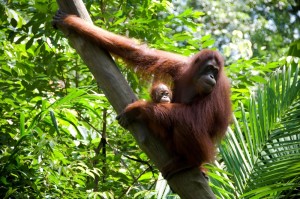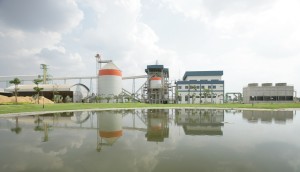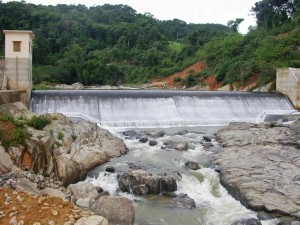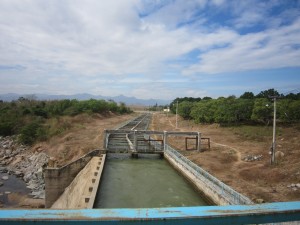Widgetized Section
Go to Admin » Appearance » Widgets » and move Gabfire Widget: Social into that MastheadOverlay zone
Hilton Worldwide Adds New Beneficiaries and Hotels to Carbon Offset Program in Southeast Asia Three new sustainability projects in the region to benefit; four additional hotels join the program
SINGAPORE – January 13, 2014 – Hilton Worldwide today announced the expansion of the Carbon Offset Program in Southeast Asia with three new renewable energy projects receiving support for 2014. The Mungcharoen Biomass Project in Thailand, the Musi Hydro Project in Indonesia, and the Song Ong Small Hydro Project in Vietnam will join the Borneo Rainforest Rehabilitation Project in Malaysia as beneficiaries of the program.
Initiated in October 2012, Hilton Worldwide’s Carbon Offset Program in Southeast Asia measures carbon generated by meetings and events held at Hilton Worldwide properties in the region, and, at no cost to customers, offsets this through the purchase of carbon credits. Hotels use the company’s proprietary LightStay™ Meeting Impact Calculator to calculate carbon emissions, and the program supports the ‘Living Sustainably’ pillar of Hilton Worldwide’s global corporate responsibility strategy, Travel with Purpose™.
As of January 1, 2014, four new hotels joined the existing 13 already taking part in the program since its launch. The new hotels are DoubleTree by Hilton Sukhumvit Bangkok, Hilton Sukhumvit Bangkok in Thailand, and two hotels in Vietnam – Hilton Hanoi Opera and Hilton Garden Inn Hanoi.
“In the first 12 months of the Carbon Offset Program in Southeast Asia we offset 7,200 tons of carbon emitted from events held in our properties,” said William Costley, vice-president, Operations – Southeast Asia, Hilton Worldwide. “This well exceeds our initial carbon offset target of 6,000 tons, and is a credit to our hotels, team members and customers.”
The 7,200 tons of carbon offset in the first 12 months of Hilton Worldwide’s Carbon Offset Program is equivalent to 758 economy class flights around the world.
“As we expand this program to include new sustainability projects and more hotels in Southeast Asia, we stay committed to creating shared value both for our business and society,” said Costley.
Participating hotels in the Hilton Worldwide Carbon Offset Program in Southeast Asia are:
- Conrad Centennial Singapore
- Hilton Singapore
- Hilton Kuala Lumpur
- DoubleTree by Hilton Kuala Lumpur
- Hilton Petaling Jaya
- Hilton Kuching
- Millennium Hilton Bangkok
- Conrad Bangkok
- Hilton Phuket Arcadia Resort & Spa
- Hilton Pattaya
- Hilton Hua Hin Resort & Spa
- Conrad Bali
- Hilton Bandung
- DoubleTree by Hilton Sukhumvit Bangkok
- Hilton Sukhumvit Bangkok
- Hilton Hanoi Opera
- Hilton Garden Inn Hanoi
Hilton Worldwide is one of the first major multi-brand hospitality companies to make sustainability measurement a brand standard and require performance against sustainability goals. In 2012, the company registered US$253 million in utility cost savings through a 12.8% reduction of carbon output, a 12.2% reduction in energy use, a 24.9% reduction of waste input and a 10.2% reduction in water use.
Supporting resources:
Learn more about Hilton MICE in Southeast Asia
Learn more about the Hilton Worldwide Carbon Offset Program in Southeast Asia
###
About the Borneo Rainforest Rehabilitation Project
The Borneo Rainforest Rehabilitation Project aims to restore the rainforests of Sabah, Malaysia and grow the habitable area for wildlife such as orang-utans, sun bears, gibbons, pygmy elephants and the critically endangered Sumatran Rhino. Apart from growing the habitable area for wildlife, the rainforest restoration will also contribute to lowering greenhouse gas levels in the atmosphere.
About the Mungcharoen Biomass Project
The Mungcharoen Biomass Project in Thailand is a biomass project that uses a rice husk fuelled combustion technique to generate electricity. The electricity generated powers two local rice mills and is also fed into the local power grid. The project converts rice husks, previously considered waste, into a valued commodity while at the same time reducing reliance on the combustion of carbon intensive fossil fuels.





You must be logged in to post a comment Login